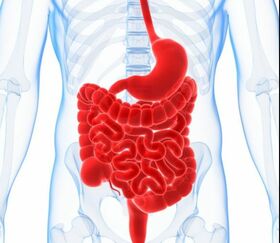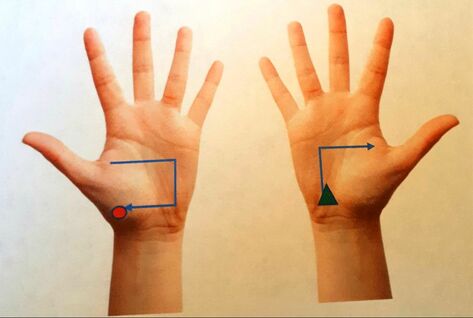 Digestive wellness and stress The digestive system is made up of a number of organs which are responsible for breaking down food for the body to use. The gut is now considered to be the bodies ‘second brain’. However, diet, lifestyle, stress, diseases and medication can lead to digestive complaints. In fact, 40% of people suffer with issues such as bloating, diarrhoea, constipation, abdominal pain, indigestion and heartburn. The body’s autonomic nervous system (sympathetic and parasympathetic) is responsible for triggering and turning off our bodies stress response. These are the ‘fight or flight’ reactions, such as rapid heart rate and breathing, that we notice in times of increased stress. These systems are also responsible for the digestion process, which in stressful situations, causes symptoms such as heavy sinking feelings in the stomach to diarrhoea and constipation. Over time stress can also allow destructive bacteria to multiply and adversely affect bowel function leading to further disease. Our gut impacts our health There is growing evidence that our well-being may be heavily impacted by messages from the gut being sent to the brain rather than the other way around. 90-95% of our serotonin lies within our gut, in addition to other important neurotransmitters. Serotonin is thought to help regulate sleep, social behaviour, appetite, digestion, memory and it is especially important in mood, with low levels being linked to depression. Therefore, a disturbed gut microbiota can affect our physical and mental health (1). Evidence is beginning to suggest that IBS may originate in a change in serotonin levels and its uptake though the gut wall, with high levels of serotonin in the system causing diarrhoea triggering the receptors to shut down which then leads to constipation (2). The range of intestinal flora performs countless functions for the body and the quality of this flora is determined by the balance existing between the various bacteria populations. When certain microbes are missing from the gut, molecules from the mucosal barrier in the gut can pass into the circulation. These can produce an immune response in the body where it recognises self-cells as foreign, resulting in an inflammatory reaction which is the underpinning of all autoimmune illnesses. There is some evidence that including pre and probiotics can help with this and that by restoring gut microbe variety behaviours such as irritability, anxiety and social withdrawal could potentially be improved (3). Other conditions are also associated with digestive issues, autism, Parkinson’s and osteoporosis are now thought to be related to poor gut function. Reflexology to support the gut Reflexology is a natural, non-invasive holistic therapy where gentle pressure is applied to areas of the feet (or hands). The theory states that the feet/hands map parts of the body and through stimulating these different reflex areas the effects of stress on organs, systems of the body and the individual as a whole can be reduced. Reflexology is a method of promoting parasympathetic responses in the body to reduce the internal stress response – easing anxiety, helping with sleep and promoting balance and healing. Based upon the evidence of stress and the function of the gut, reflexology is ideally placed to support clients with digestive issues, however, to be effective it is vital that a full medical history is taken by a qualified therapist. Reflexology may also promote gut peristalsis and therefore correct gut function. Many clients remark on how often their stomach gurgles during treatment! The Vagus nerve reflex is an important component of many reflexology treatments. Stimulating the Vagus Nerve (which mimics signals from the gut to the brain) not only has been found to improve memory and learning, but also has been used as a treatment for epilepsy, depression and may well be useful for other conditions from migraine to tinnitus to Alzheimer’s (4). Whilst reflexology cannot claim to cure such conditions, it can support clients with pre-existing aliments, reducing the impact and improving quality of life. Stimulating nerve routes to digestive organs through spinal reflex work is also a helpful to clients with digestive problems. New research and developments in this field are all showing how important our digestive system really is to our overall health. It is worth considering what steps you can take to support it, whether this be increasing the variety of food you eat to encourage diversity in the microbiota or reducing your stress levels. The message is clear, look after your gut and it will help look after you!  Self-help hand reflexology for digestive issues: Work one hand at a time, using the other hand to work the reflexes. Then swap hands. In cases of constipation, use a thumb to apply pressure and encourage correct bowel function. In cases of pain or inflammation, for example if suffering with colitis use a finger and apply only gentle pressure.
References
Emma Clark, MAR, BSc
6 Comments
30/4/2022 04:58:51 pm
Nowadays, digestive illness is a huge matter of concern. There are so many people who suffer from it. Though there are some effective solutions available to cure it but the wellness mentioned it this article are quite useful and relevant. I think people must apply them.
Reply
27/3/2023 06:15:15 am
Great man! you’re awesome. Thanks for your clear article. Your article is very interesting and informative. It helped me a lot.
Reply
1/4/2023 09:53:21 am
Excellent write-up, I have always enjoyed your articles, you’re such a wonderful writer, always on point. This article is loaded to the hilt.
Reply
Archit Mehta
19/8/2023 04:15:36 pm
I appreciate the effort you've put into providing practical tips and advice in your post. They add value to the reader's experience. <a href="https://www.digistore24.com/redir/474751/ArchitMehta/" target="_blank">click here</a> for more insights.
Reply
Leave a Reply. |
My StoryI am a mum of 2 young boys and prior to becoming a reflexologist I worked within health and education. I am a former Midwife and have also worked in adult education and schools with children with additional needs. As a Midwife, I became frustrated with hospital policies, time limits and staffing, all of which prevented me from being able to give the quality of care and time that I wished to give to families at this precious time in their lives. Working with children and adults in a variety of roles, has helped develop my knowledge and skills in working with people from all walks of life. Archives
July 2020
Categories |
Copyright 2017

 RSS Feed
RSS Feed






